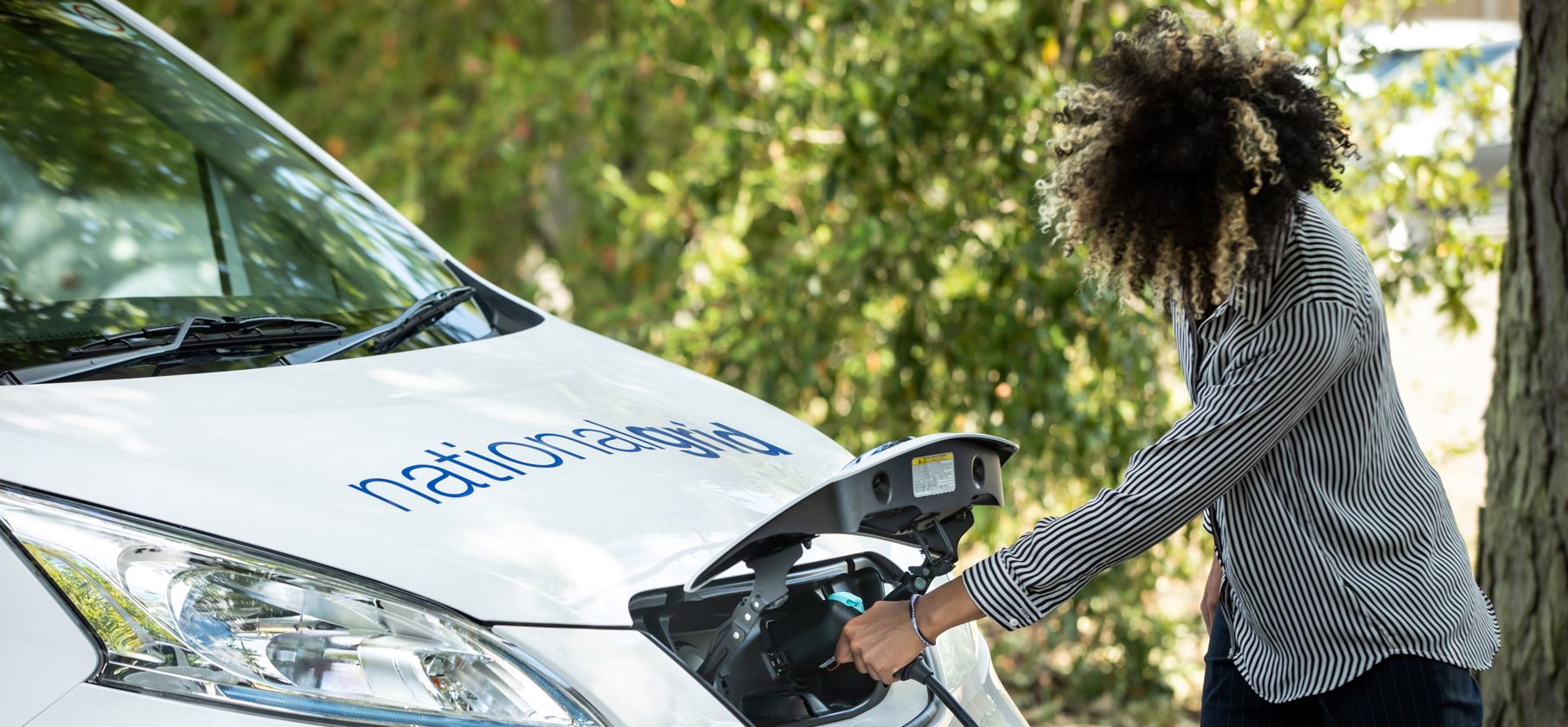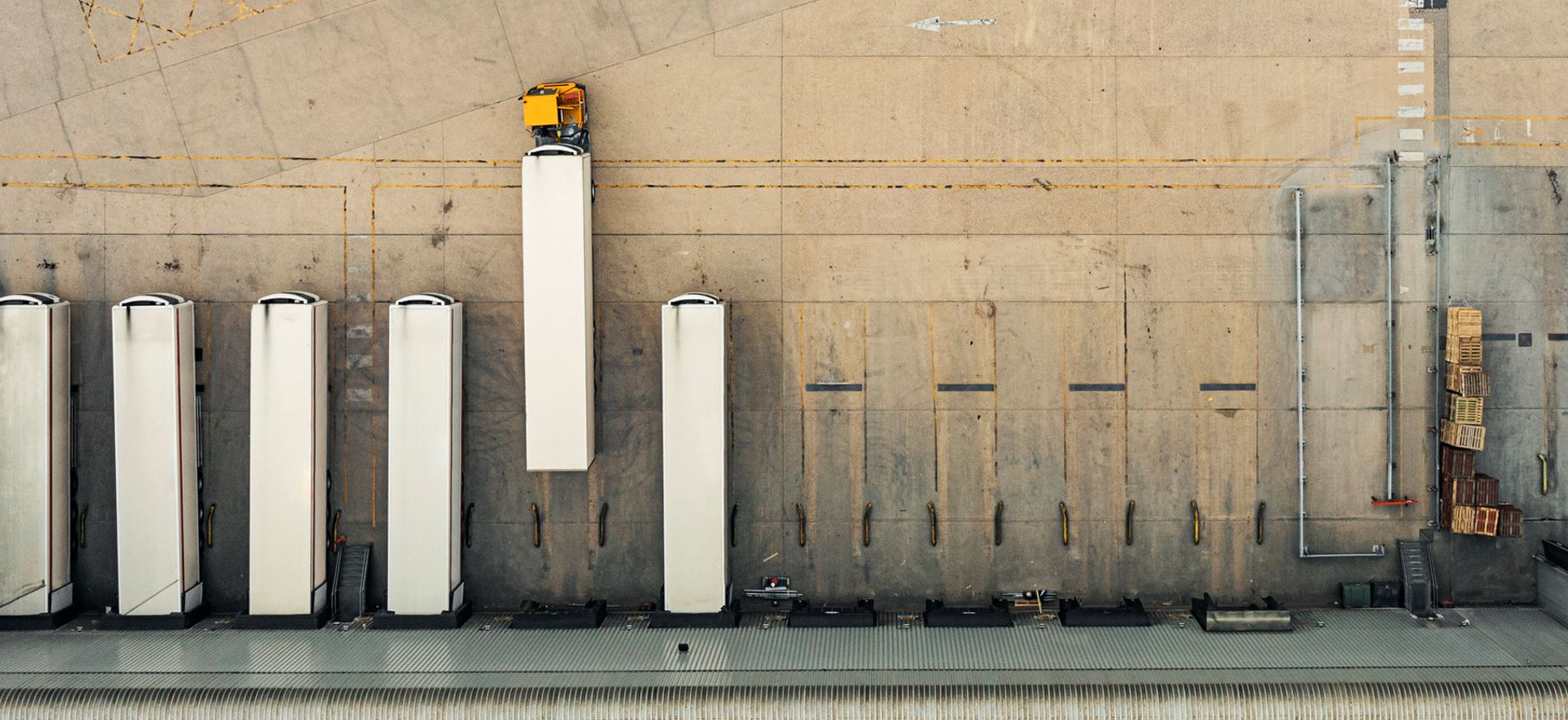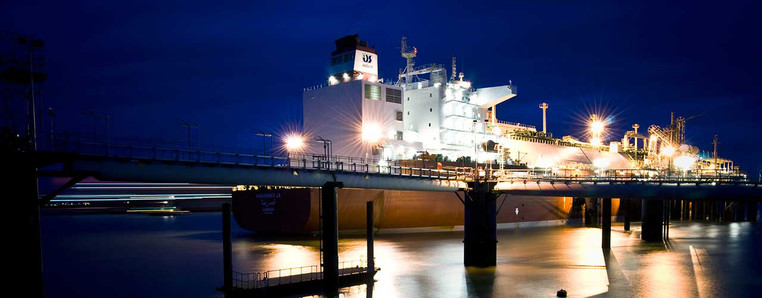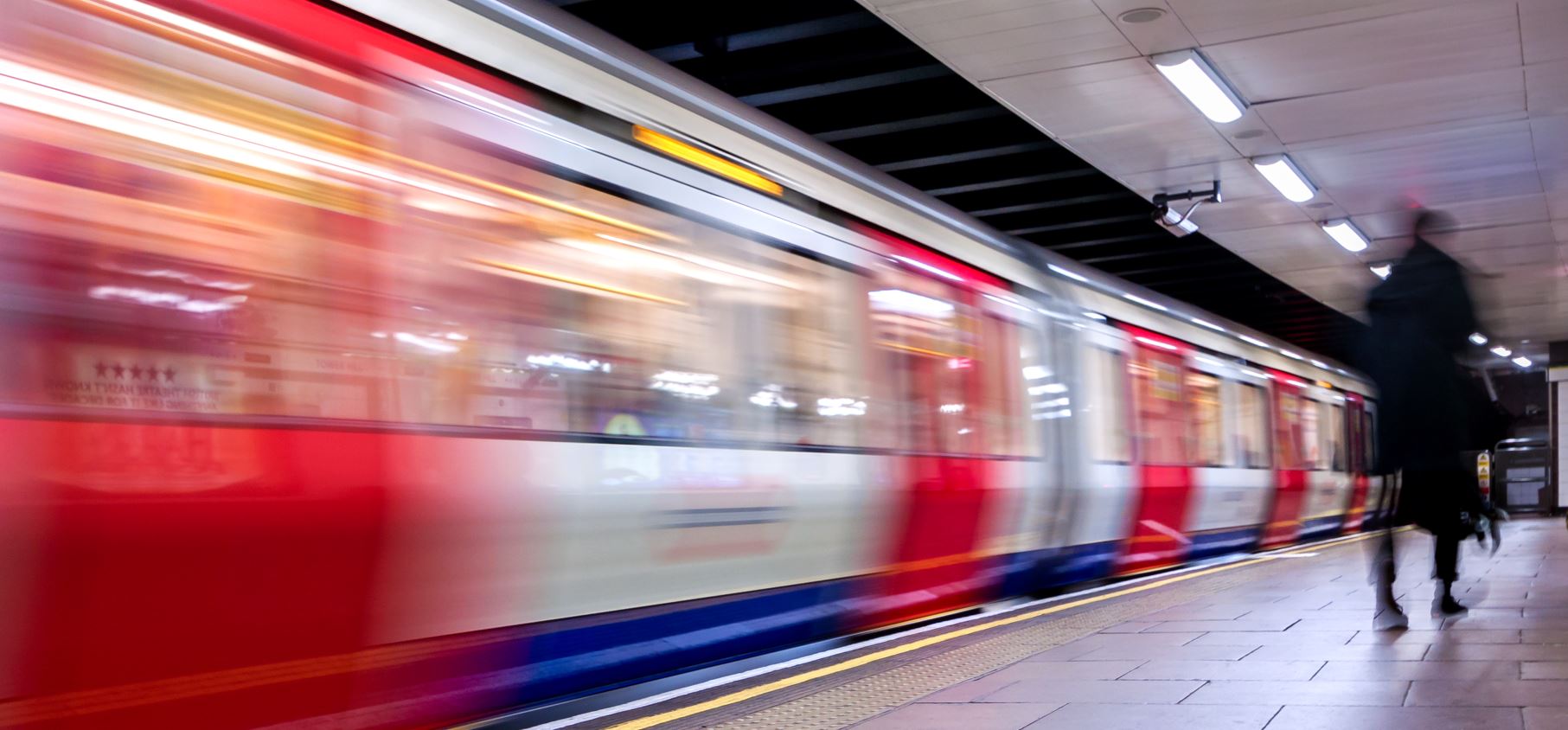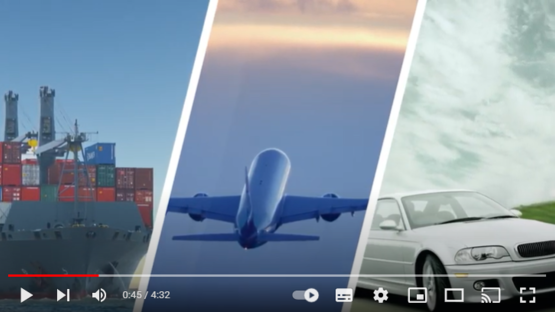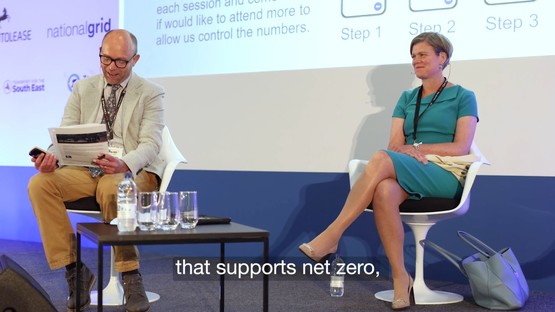
In 2020, Digest of UK Energy Statistics showed that transport continues to be the highest emitters of greenhouse gases in the UK, accounting for more than a quarter of all carbon emissions in the UK.
As an electricity network owner, National Grid will play a crucial role in enabling transport to decarbonise and help the UK deliver its net zero carbon emissions target by 2050.
Our role in transport decarbonisation
As the owner and operator of the transmission network, National Grid is poised to facilitate and help drive the transition to cleaner transport in the UK by bringing the right people together, to have the right conversations and shape future solutions.
All modes of transport will need to decarbonise, no matter the scale and complexity. We are confident that we can make a difference, but huge changes are needed and fast to enable the transition to clean transport. Significant energy infrastructure is required connecting transport hubs, managing the supply and demand (electricity system operator) and supporting alternative fuels, e.g. hydrogen
Read our summary of what we’ve been up to in the transport decarbonisation space across our UK and US businesses.
Government plans, commitments and strategies
On 14 July 2021, the UK Government published its Transport Decarbonisation Plan (TDP). The plan sets out Government’s decarbonisation ambitions and commitments for all transport sectors (cars, vans, HGVs, buses, rail, maritime and aviation). We acknowledge that this is the beginning of a complex process to deliver the policy and infrastructure needed to enable this transition.
Government also released the Hydrogen Strategy for the UK on 17 August 2021, which explores the critical role that hydrogen will play in the UK’s transition to net zero.
To achieve net zero by 2050, all modes of transport must decarbonise. Grab a coffee and take a moment or two to familiarise yourself with our response to the Governments consultation for zero-emission vehicles.
April 2022: Low carbon fuel strategy – consultation response
We are here to support the decarbonisation of all modes of transport, regardless of technology. Find out more in our April 2022 consultation response to the Governments call for evidence on its low carbon fuels strategy.
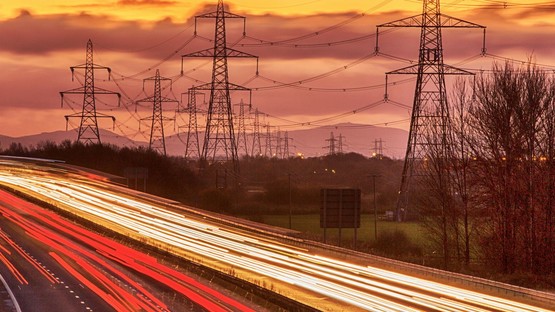
Transport hubs
Find out what we've been doing to support multi-modal transport hubs and how they will facilitate charging and refuelling solutions for a range of transport sectors.
Find out more
Electric vehicles (EVs)
Transport currently accounts for a significant proportion of global CO2 emissions, so it’s likely that more of us will be looking to drive an EV in the future.
Find out more about EVs and their role in the journey to net zero carbon emissions.

Supporting the growth of clean transport: Decarbonising heavy goods vehicles on the strategic road network
Our analysis shows that there is a strong synergy between EV and HGV en-route energy provision to Motor Services Agreements (MSAs) in England and Wales, if Transmission connection solutions are used. Providing electricity capacity at MSAs for cars and vans through the roll-out of the Rapid Charge Fund creates an opportunity for other modes of road transport to utilise some of this provision.
Read reportThe future of transport
Transport is the highest emitter of greenhouse gases in the UK. For the UK to deliver its net zero carbon emissions target by 2050 there will need to be huge changes to the transport we use, whether that's by air, sea or land.
Watch videoFAQs
As the journey towards mass adoption of electric vehicles (EVs) speeds up, it’s vital that there’s enough clean energy to power this transport revolution. Our Transport Decarbonisation Director, Graeme Cooper, has long championed the adoption of EVs and is confident the grid can support the extra demand for electricity this transition will create. He says: There is definitely enough energy and the grid can cope easily.
“The growth in renewable energy means this is not static and smart metering will make this more efficient. For example, the growth in wind power from the extra offshore wind farms being developed will adequately meet the future demand for electrifying transport – an extra 100 terrawatt hours (TWh) from our current 300 TWh consumed. Preparations have been underway for a while, as we’ve been discussing how best we can work towards the green transport changeover with government, electricity distribution companies, who transport the energy from the grid to homes and businesses, service station operators and charge point providers for over two years."
We are here to support all solutions, regardless of technology and fuel. We are continuing to promote the need to accelerate technology trials across all transport sectors, in order to provide much needed clarity to stakeholders.
If you are exploring your options for decarbonising your fleet, firstly it’s important to understand your charging / refuelling requirements. You will need to understand:
how many vehicles require a connection – this may include an array of vehicles
the type of charging / refuelling you require – rapid or slow that can take place overnight
where you require charging / refuelling facilities – is this at a depot or could a shared charging solution be used?
We are uniquely positioned in the energy sector; we work alongside the local distribution network operators and councils and, by having an initial conversation with us, we can come up with the right solution for your needs. You can contact our Decarbonisation of Transport team by emailing [email protected].
We’re advancing our commitment to decarbonisation and the future of clean transportation by joining the EV100 initiative. Find out more about how we are decarbonising our fleet.
By the 2030s new petrol and diesel car sales will be banned, so the number of electric vehicles (EVs) will need to grow even faster than today.
However, in our discussions with many people about EVs, there is still work to do to bust some of the many myths out there. So together with Octopus Energy, we asked Arup to look into their whole Life Cycle from before, during and after you get an EV, including what it means for the energy system.
This report, Full Charge – Electric Vehicles and a Decarbonised Future, sets out the facts and the progress that has been and is still being made across costs of running an EV, charging infrastructure and their environmental impact.
The future for EVs is positive and we hope this report helps bust some of those myths for you!
You can also check out Top Gear’s interview with our Transport Decarbonisation Director, Graeme Cooper.
Related news, stories and podcasts
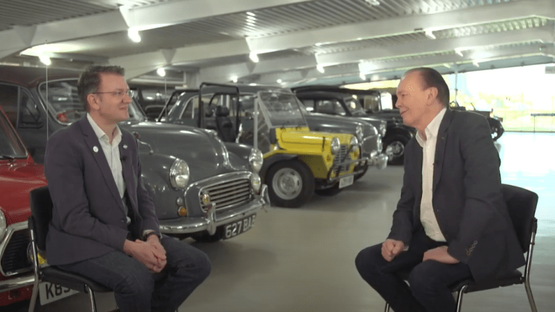
Myth busting with motor journalist Quentin Wilson
Graeme Cooper, Head of Future Markets at National Grid, discusses whether the grid can cope with the electrification of vehicles in an interview with motoring journalist Quentin Wilson. Graeme busts myths around EV reliability and the uncertainty of renewable energy, how are we transitioning to cleaner energy and why are batteries so important in our race to a cleaner world.
Watch now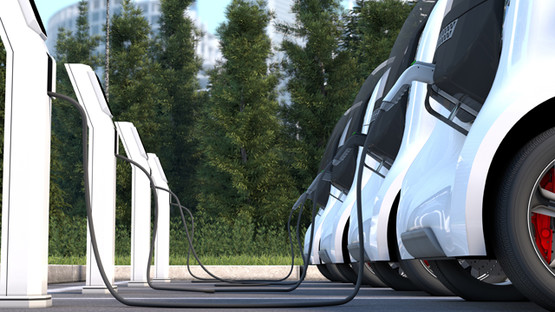
Inspiring leaders for the road ahead...
Lease Plan, co-founder of the influential EVI00, today announced their 'EV Hot 20' inspiring leaders making a real difference. National Grid achieved top honours with Graeme Cooper BSc MBA and Lorna McAtear being recognised for their collaborative and strategic work that is delivering real change.
Read all about it
New online tool will help UK ports transition to net zero
National Grid has partnered with Siemens to create a free online tool to help UK ports meet their net zero targets. The tool will aid decarbonisation by helping ports forecast the future infrastructure needed to meet potential increased demand for electricity from zero emission operations.
Find out more...Innovation Technology and Transportation Hub 2021
Find out more about our 2021 event which showcased our critical role in the decarbonisation of transport in the UK and our work alongside partners, including British Ports Association, Maritime UK, Stagecoach Bus, Rolls Royce and Harley Davidson.
Watch video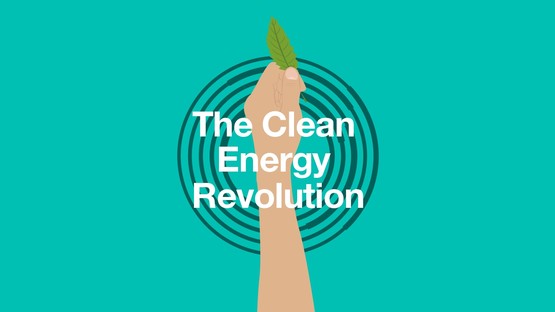
Podcast: Driving a transport revolution
Helen Skelton from the BBC talks to Graeme Cooper and other industry experts on driving a transport revolution.
Listen now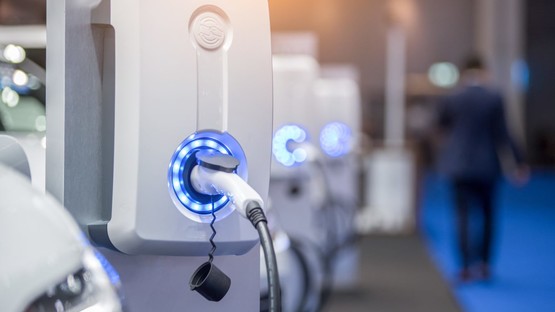
National Grid's guide to...: Decarbonisation of transport webcast
A short, virtual session covering our ambitions and progress in decarbonising transport.
Watch webcast
Contact us
For general enquiries, or you simply want to find out more about decarbonising transport, contact our Decarbonisation of Transport team:
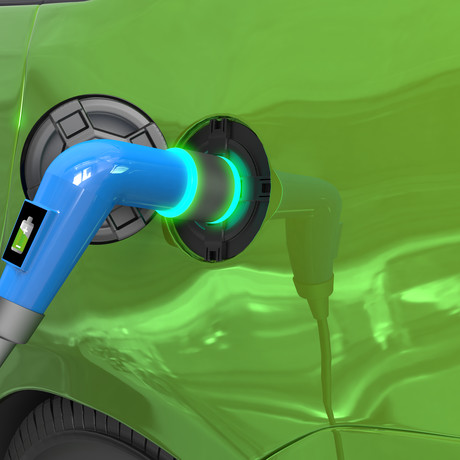
Get connected
Whether you have a large or small energy project, find out more about how to connect to our electricity transmission network here:
